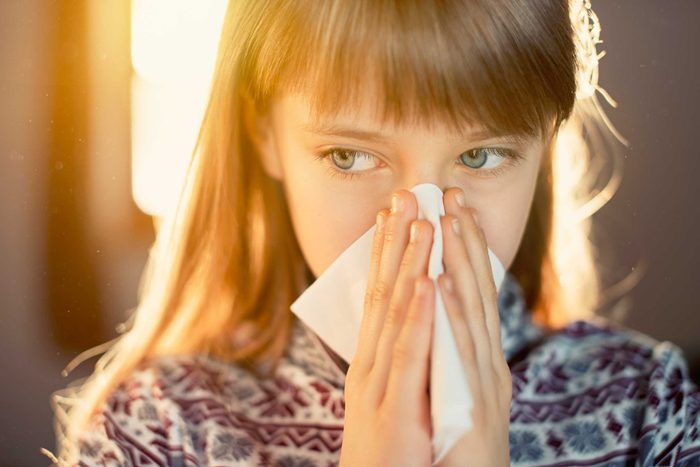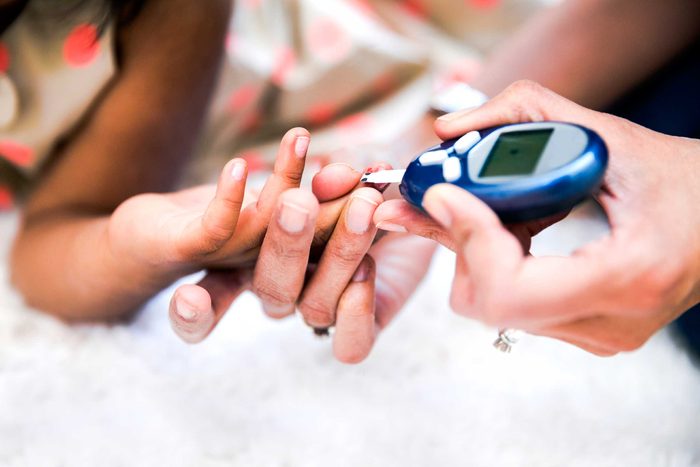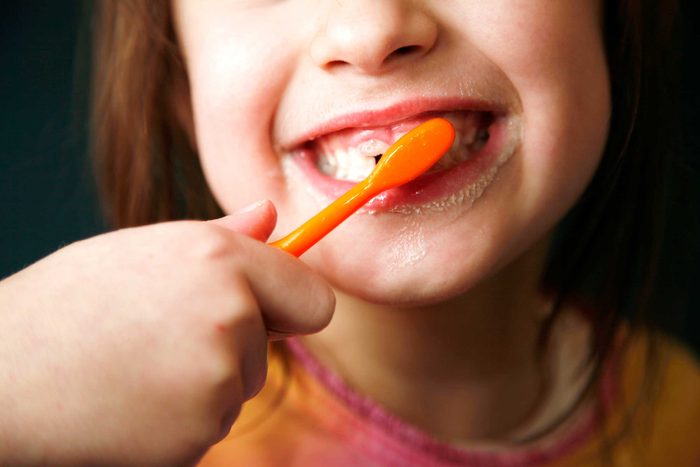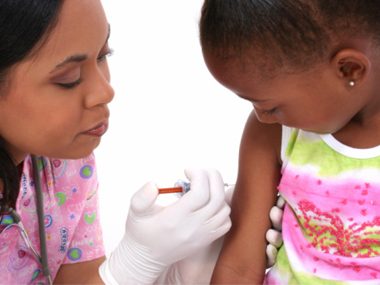Firstborns: More food allergies and hay fever
In a Japanese study of more than 13,000 children between age 7 and 15, the oldest siblings were more likely to have hay fever and food allergies than their younger brothers and sisters, according to research presented at a meeting of the American Academy of Allergy, Asthma, & Immunology in 2011. One possible explanation: Older kids are overprotected from germs compared to their younger siblings, who are exposed to bugs the bigger children bring home from school. Also, parents might become more lax about detoxing every dropped pacifier from the later-born offspring, which may bolster their immune systems and fend off allergies.
Firstborns: More diabetes and hypertension
A recent small study from New Zealand, which looked at blood tests, weight, and body composition of 85 healthy children between age 4 and 11, found that first-born kids had less sensitivity to the hormone insulin (a precursor to diabetes) and slightly higher blood pressure compared to later children. Researchers think that changes occurring in the mother’s uterus after her first pregnancy may affect nutrient flow and metabolic differences in subsequent siblings. More evaluation is needed, however, to learn how these findings may impact adult cases of chronic disease. Another theory is that oldest siblings tend to be more driven, says psychiatrist Sue Varma, MD, on DoctorOz.com, which may increase their stress, blood pressure, and perhaps ultimately bring on cardiovascular disease.
Firstborns: More intelligence
Bitter second siblings can point to a classic Norwegian study that found, back in 2007, that firstborns have an IQ about three points higher than the next eldest. This difference could be due to an intellectual boost that comes from an older child mentoring a younger one, Jeffrey Kluger pointed out in a Time magazine article on the subject. Three points might not sound like a lot, but it can translate to a 15-point difference in standardized test scores-or Harvard versus a safety college, in some cases.
Middle child: Healthier gums
Middle kids have a 5 percent lower risk of gum disease, Prevention magazine reported. Their immune system-stronger because it was exposed to their older sibling’s germs-is better equipped to combat infection-causing oral bacteria.
Middle child: Happier marriages
Middle kids are the happiest and most satisfied in relationships, according to Israeli happiness surveys. Katrin Schumann, co-author of The Secret Power of Middle Children, says that although middle children are more open-minded and adventurous about sex, they’re less likely than their siblings to cheat when in committed relationships.
Youngest Child: Addictive behaviour
The thrill seekers of the family, “babies” are the most vulnerable to addictive habits, from sex to drinking, according to Dr. Varma. Indeed, Prevention.com reported that youngest kids go through puberty three months earlier on average than their older siblings, which can increase risk-taking behavior. Research shows these precocious kids start having sex earlier than their older siblings and are also more likely to smoke cigarettes. In fact, one study of Swedish adults found that later-borns were more likely to die of respiratory-related cancers than older siblings. The researchers suspect this may be because younger siblings begin smoking at a younger age, which can promote a long-term habit.
Youngest Child: Lax on vaccines
Call it forgetful parenting? Research shows the last-born kids are less likely to get vaccinated than older brothers and sisters, sometimes at only half the rate, according to Time.
This article originally appeared on RD.com.
Related:
• Your Birth Order Personality
• 35 Health Secrets Your Body is Trying to Tell You
• What If No One Believed You Were Really Sick?







